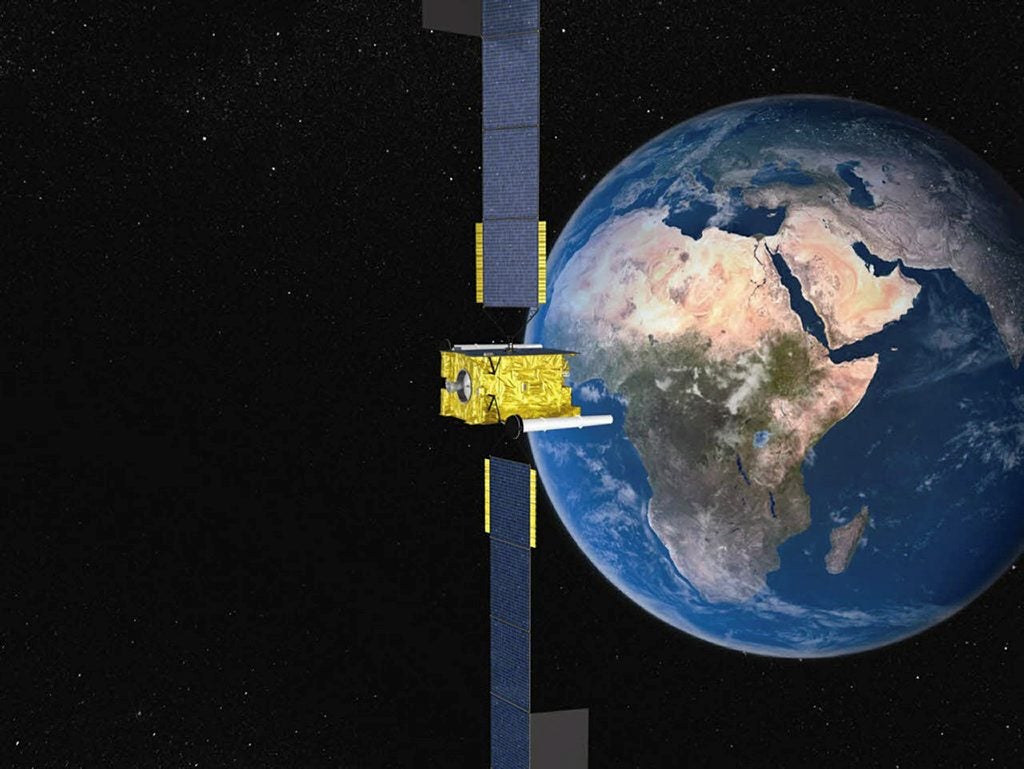
The decision followed a meeting of NATO’s leaders in Brussels on Monday and was included in a subsequent communique released by the Alliance.
The NATO communique reads: “We consider that attacks to, from, or within space present a clear challenge to the security of the Alliance, the impact of which could threaten national and Euro-Atlantic prosperity, security, and stability, and could be as harmful to modern societies as a conventional attack.

Discover B2B Marketing That Performs
Combine business intelligence and editorial excellence to reach engaged professionals across 36 leading media platforms.
“Such attacks could lead to the invocation of Article 5.”
Article 5 means that an attack on one member state can be seen as an attack on all members.
Space is heavily is relied upon for mobile phones, banking, GPS and a number of other systems.
Systems including ground-based satellite interceptors, cyber and space-based anti-satellite weapons threaten the use of both military and civilian satellite infrastructure.

US Tariffs are shifting - will you react or anticipate?
Don’t let policy changes catch you off guard. Stay proactive with real-time data and expert analysis.
By GlobalDataCommenting on the extension of Article 5, the UK Ministry of Defence’s (MOD) Director Space Air Vice-Marshal Harv Smyth said: “We welcome NATO’s recognition that the impact of attacks to, from, or within space could be as harmful to modern societies as a conventional attack, and that such attacks could lead to the invocation of Article 5.
“It is an important acknowledgement and a great step for NATO. We will continue to support NATO as it implements space as an operational domain.”
In July 2020, Russia was accused of testing a space-based anti-satellite weapon. At the time the US State Department called the test ‘hypocritical and concerning’.
In Russia’s test, one satellite launched an object close to another in a simulation of how an in-orbit anti-satellite weapon would be deployed.
While nuclear weapons and other weapons of mass destruction are banned in space, there are few constraints on the deployment of space-based weapons systems or systems that can destroy satellites from the ground.
Both threaten satellites as resultant debris can spread and cause collateral damage to other systems.
NATO added that a decision on whether such space attacks would lead to the ‘invocation of Article 5’ would be taken by the North Atlantic Council on a case-by-case basis.
NATO allies and potential adversaries have in recent years extended their efforts in space with the US establishing a Space Command and a Space Force as the newest branch of its Armed Forces.
The UK this year formally established its own Space Command. In 2019, France also established its own Space Command and in July 2020, its Air Force was renamed Armée de l’Air et de l’Espace, meaning Air and Space Force.
Last Summer, The UK proposed a UN resolution aiming to set an international consensus for ‘responsible’ behaviour in space and avoid conflict in the domain.
Ground and air-based anti-satellite weapons have been tested in the past. In 2019, India test-fired a rocket that brought down one of the country’s own satellite systems. China has also tested similar weapons.
Article 5 was first triggered following the 9/11 terrorist attacks in the United States.
Following a meeting at the edges of the leader’s summit between US President Joe Biden and NATO Secretary General Jens Stoltenberg, Biden said the US saw Article 5 ‘as a sacred obligation’.
Biden added: “I want NATO to know America is there.”
Previously, Article 5 had technically been limited to land, air, sea and cyber attacks.





